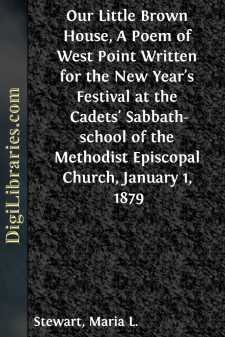Categories
- Antiques & Collectibles 13
- Architecture 36
- Art 48
- Bibles 22
- Biography & Autobiography 816
- Body, Mind & Spirit 145
- Business & Economics 28
- Children's Books 18
- Children's Fiction 14
- Computers 4
- Cooking 94
- Crafts & Hobbies 4
- Drama 346
- Education 58
- Family & Relationships 59
- Fiction 11831
- Foreign Language Study 3
- Games 19
- Gardening 17
- Health & Fitness 34
- History 1378
- House & Home 1
- Humor 147
- Juvenile Fiction 1873
- Juvenile Nonfiction 202
- Language Arts & Disciplines 89
- Law 16
- Literary Collections 686
- Literary Criticism 179
- Mathematics 13
- Medical 41
- Music 40
- Nature 179
- Non-Classifiable 1768
- Performing Arts 7
- Periodicals 1453
- Philosophy 66
- Photography 2
- Poetry 897
- Political Science 203
- Psychology 45
- Reference 154
- Religion 516
- Science 126
- Self-Help 86
- Social Science 82
- Sports & Recreation 34
- Study Aids 3
- Technology & Engineering 59
- Transportation 23
- Travel 463
- True Crime 29
Our website is made possible by displaying online advertisements to our visitors.
Please consider supporting us by disabling your ad blocker.
Our Little Brown House, A Poem of West Point Written for the New Year's Festival at the Cadets' Sabbath-school of the Methodist Episcopal Church, January 1, 1879
by: Maria L. Stewart
Publisher:
DigiLibraries.com
ISBN:
N/A
Language:
English
Published:
1 year ago
Downloads:
12
*You are licensed to use downloaded books strictly for personal use. Duplication of the material is prohibited unless you have received explicit permission from the author or publisher. You may not plagiarize, redistribute, translate, host on other websites, or sell the downloaded content.
Description:
Excerpt
OUR LITTLE BROWN HOUSE.
There's a little brown house just under the hill;
It's not by the river, nor yet by a rill;
It's not on the green-sward where the gay and proud meet,
But it stands on the corner of Bandbarrack's street.
This time-honored veteran, in armor complete,
Has stood many winters the storm and the sleet—
The early spring rains and the long summer heat,
The wear and the tear of a great many feet.
It's a very small building, and plain in its way;
No high-toned paintings, not a thing that is gay;
It was built of the gun-house of Col Thayer fame,
During the years of the Delafield reign.
Then came Captain B.—he thought it all wrong
That such a small house should hold such a throng;
So out went the walls, up went the roof,
And thus it was altered and made large enough.
Then again it was altered, with the door to the south,
Which did very well in time of a drought;
Then Lieutenant G., he thought it to better—
He changed it a little, but not to the letter.
It was painted without and papered within;
The roof now is shingles, then it was tin.
Next came Colonel B., a thrifty man—
He too had to lend a helping hand.
So down went the stove and up went a heater,
A thing which, indeed, was very much neater.
Again it's been altered, just right, it's confess't,
For the door has gone back again into the west.
PRESENTING "SPOONEY BUTTON."
The door has been covered with a very nice hood;
And thus it's been altered again and again;
This time it was altered to keep off the rain.
This little brown house, so dear to each heart,
So famous in history, so free from all art—
Our hearts with emotion always will thrill
When we think of the chapel under the hill.
But where are the loved ones we met here of yore?
Their forms and their faces we'll see nevermore;
Their loud, cheery laugh and swift-coming feet
No more in the Sabbath-school ever to greet.
Some have launched out on the world's busy tide,
Some have got married, some have died,
Some on the frontier, wading through strife,
With the musketry's rattle and the wild scalper's knife.
Some by the camp-fires, with their minds on the rack,
Eating salt pork with a little hard-tack,
Wading through snow or fording a river,
Or asleep on the ground without any cover.
From the falls of Missouri, with its loud, maddening roar,
To the slopes of Pacific, an ever-green shore,
To the Atlantic Ocean, with a coast sand-bound,
There some of my boys are sure to be found.
To the northward, to the westward, and fair, sunny south,
Like the dove with the olive-branch of peace in its mouth,
Thus they've gone forth their garlands to weave,
When they get through they'll return with the sheaves.
Some on the Lone Star, quite at their ease,
Eating their rations, doing just as they please,
Basking in sunshine among the sweet flowers,
Whiling away the long, tedious hours.
KOSCIUSZKO GARDEN.
From the St. Lawrence River to the Rio Grande,From Puget's Sound to Maine's cold sand,
O'er the hilltops, through the valleys, never to lag,
Not a spot on this land but they've planted the flag.
The old village people—where are they,
That in the chapel met to pray?
The stalwart man and maiden mild,
The matron and the little child,
The son and sire side by side,
As to the village church they hied—
Some are gone and sweetly rest,
With their white hands folded on their breast.
Under the violet and the rose,
The autumn leaves and winter snows,
On the banks of the Hudson there to sleep,
While the moon and stars their vigils keep....


